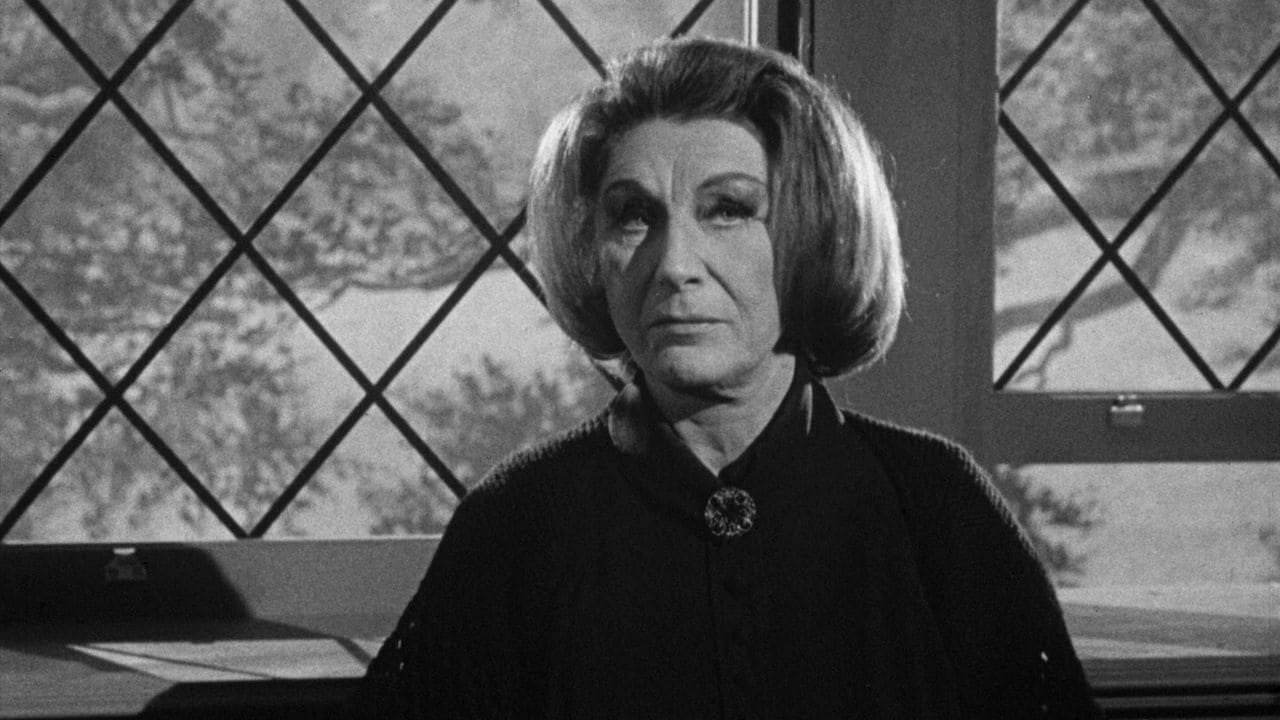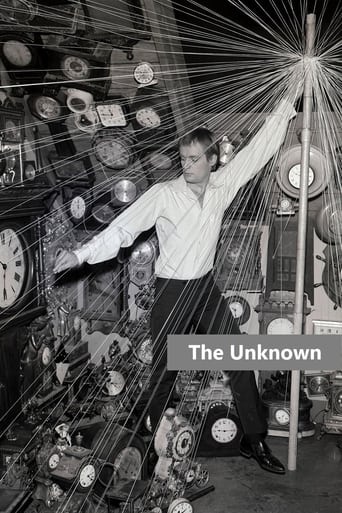Mjeteconer
Just perfect...
SeeQuant
Blending excellent reporting and strong storytelling, this is a disturbing film truly stranger than fiction
Erica Derrick
By the time the dramatic fireworks start popping off, each one feels earned.
Edwin
The storyline feels a little thin and moth-eaten in parts but this sequel is plenty of fun.
atmcfadden-1
Telegonus' review is well-written and on-point, so my review is merely an addendum to it.For anyone interested in watching this episode, it is well-worth the time. "Forms of Things Unknown" is available for download through Amazon; it is listed as the last of the first season episodes of the 60's version of "The Outer Limits".The designation of this episode as "horror" is almost an over-statement in terms of "The Outer Limits" as it does not have the monster/alien element of most OL episodes. That does not mean anything was lacking in terms of suspense, though. The difference in atmosphere was due to being filmed as a pilot for a possible series called, "The Unknown". At times, "Forms" has an almost mesmerizing quality. For b/w, the episode was beautifully filmed and has an almost film noir quality.
arumbold
According to a couple different sources, Joseph Stefano originally wrote this teleplay as a pilot for a new TV series that didn't sell, and it ended up broadcast as an episode on the original "Outer Limits" series. This makes sense, since "The Unknown" (aka "The Form of Things Unknown") has more of a Gothic thriller quality to it than a science fiction story. The strange "time tilting device" with its "rare magnetic wires" is about the only nod to the SF genre in the show, though it really has more in common with, say, the eerie "camera obscura" that is the centerpiece of both an episode of "Night Gallery" and the related short story by Basil Copper. In its relationship to "The Outer Limits," this show feels more like "An Occurrence at Owl Creek Bridge" did to "The Twilight Zone." Well, anyway, enough of the vaguely-related comparisons. "The Unknown" makes for a very moody, entertaining experience, especially on a rainy night since the majority of the show takes place in a gloomy mansion on... well, a rainy night. The writing is a little melodramatic at points, but the uniformly strong acting by the cast helps it avoid being overdone. David McCallum delivers a performance that is both intellectually sinister and childishly spritely in capturing the eccentricity of Tone Hobart, the creator of the machine. Vera Miles is coolly elegant as the scheming sophisticate Kassia Paine (she is described as a "sleek sack of sin," -- interesting!), while Barbara Rush plays the part of Leonora Edmond with emotional fragility and pathos -- even though she is not above committing murder. Scott Marlowe delivers a convincingly menacing portrayal of the cunning and evil Andre Pavan and has some of the best lines in the show: for example, "I am noisy rich...but I want to be quiet rich" and "come as you are...in your fine stiletto heels." Finally, Sir Cedric Hardwicke underscores the rest with a spirit of calm gravitas and that marvelous voice of his, one more disparate thread that, with the other characterizations, is woven into an intriguing clash of emotions and ambitions.Between the superb camera work (all in black & white, which is perfect for this show), the beautifully evocative score by Dominic Frontiere, and the aforementioned performances, "The Unknown" delivers an atmospheric blend of preternatural doings against a backdrop of subtle sexual tension. By the way, I liked the ominous little "bridging" moment in the story when Kassia and Leonora encounter the small funeral cortège on the country road -- just another quirky detail that helps pull it all together.P.S. At least one explanation of this show on a website discussing "The Outer Limits" reports that there is an alternate version of "The Unknown." In this other version, apparently Andre did not actually die -- the thanatos tree was an invention on his part and was not a lethal shrub, so he was faking his own death. Later in the story, when he DOES die in the car wreck, Kassia takes the gun and returns to the house. Mistaking Tone's desperate entreaties to Leonora as an attack on her, Kassia shoots him and he dies in front of his time-tilting machine, which turns out to be nothing; he was apparently just a madman after all. I'd be curious to know if it was actually filmed this way, or if it was just a script version that Stefano wrote but which never got in front of a camera.
telegonus
The Unknown (aka Forms Of Things Unknown) was originally aired as an episode of the Outer Limits TV series in 1964. Set in Europe, it concerns two American women who are manipulated and dominated by a sadistic man with whom they are both deeply involved, whom they decide to poison. After the murder they arrive at the home of a very peculiar young man whose hobby is playing with time. He has developed an elaborate machine to conduct his experiments and, as things turn out, succeeds in bringing back to life the dead man his two visitors have recently killed. Or has he? Once again, these women are being played with, this time in an even more sinister manner, only in this case the trickster is a retiring, benign seeming, scholarly fellow who, when not spying on the women at odd moments, is inclined to quote passages from Shakespeare's A Midsummer Night's Dream.This is a daring and original film, beautifully photographed by Conrad Hall, and finely acted by a well chosen cast that includes Barbara Rush, Vera Miles, David McCallum, Scott Marlowe and Sir Cedric Hardwicke. It is in many ways a "chamber film", small-scale and intimate, done in a manner suggestive of Ingmar Bergman. Director Gerd Oswald does a superb job with the material, and Joseph Stefano's script is artistically ambitious, coming at times perilous close to going over the top, alternately provocatively philosophical and emotionally unnerving, it is like nothing else I have ever seen. If I hesitate to call it a masterpiece this is due mostly due to my resistance to the word, and also to the fact that I've only seen the film once in its entirety and would like to examine it more closely before making grand pronouncements about it. As it is, The Unknown is in a class by itself, and deserves wider distribution than it has thus far received. It is a compelling, utterly unique viewing experience.
Thomas Rucki
"The Unknown" is an elegant, oddball and symbolic tale that pays tribute to many classic works: first, the core of the drama comes from Henri-Georges Clouzot's "Les Diaboliques"--the drowning of a man--and then borrows elements from Alfred Hitchcock's "Psycho"--the old dark house and composer Dominic Frontiere's music remind the shrill violin of "Psycho" during the murder in the lake scene--, Val Lewton's 1940's noirish productions--fear created by the power of suggestion--, injects some literary references to William Shakespeare's "A Midsummer Night's Dream" (see David McCallum's monologues delivery) and anticipates the mood of Ingmar Bergman's "Persona"--see the close-ups combined with quick cuts of both actresses inside the mansion. The camera works of Conrad L. Hall and William A. Fraker are superb and innovative: see how they transform Nature to give it a dreamlike texture during the lake scene. The general art direction and the dramatic structure are so refined that make this TV movie almost like a feature film. I think this is a work of art for 1964's standards. For the anecdote, the rip through main title by Wayne Fitzgerald as well as Dominic Frontiere's original score was re-used in 1967 for Quinn Martin's "The Invaders".

